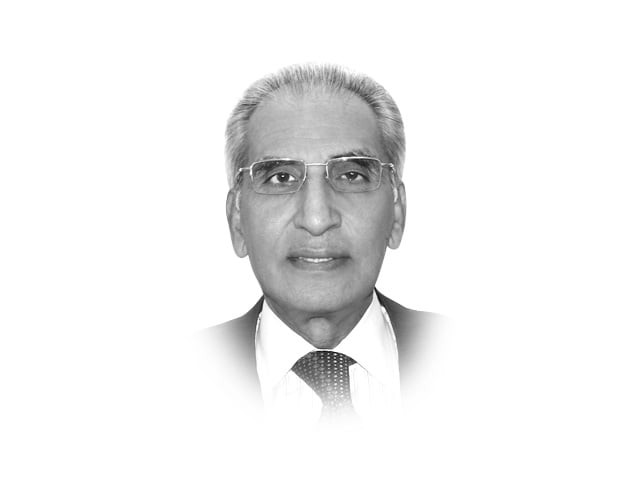The US pivot and China’s response
It's incumbent on both sides to work together and not ratchet up tensions, in a region already beset with problems.

The writer was Pakistan’s ambassador to the EU from 2001-2004 and to the US in 1999
tariq.fatemi@tribune.com.pk
China’s own response, which had earlier remained somewhat disjointed, appears to have finally crystallised, after the once-in-a-decade leadership transition. This explains why experts and scholars attached importance to the publication late last month of China’s national defence policy paper. The defence ministry document is viewed as an authoritative rebuttal of the US rationale for the “pivot” to Asia.
Though not accusing the US of being directly responsible for increased tension in the region, the policy paper alluded to this factor when stating: “Some country has strengthened its Asia-Pacific military alliances, expanded its military presence in the region, and frequently makes the situation tenser.”
On the other hand, the policy paper asserts that the leadership is not worried about the changed US policy, confident that China has “seized and made the most of this important period of strategic opportunities for its development”, adding that its “modernisation achievements have captured world attention”. In this context, it also highlights the advantages accruing to it because of improved relations with Taiwan.
While some observers welcomed the policy paper for being softer than earlier media pronouncements, it was accompanied by an important commentary in the official People’s Liberation Army Daily, which adopted a harsher, nationalist stance, accusing the West of trying to contain China. It asserted, “currently, the world situation is undergoing its most profound and complex changes since the end of the Cold War”. Reflecting the army’s tougher attitude, the paper added: “Hostile western forces have stepped up their strategy of imposing westernisation on our country and splitting it up, and they are doing their utmost to fence in and contain its development”.
However, another important indicator of a subtle though important change may be the fact that the policy paper omits to reiterate earlier assurances that China would never be the first to use nuclear weapons. A few days earlier, President Xi Jinping, in his first appearance before a foreign audience in China, at an international gathering known as the Boao Economic Forum, described the situation in Asia as one in which “hot spot issues keep emerging and both traditional and non-traditional security threats are confronting Asia”. At the same time, he warned, “no one should be allowed to throw a region and even the whole world into chaos for selfish gain”.
President Xi did not, however, ignore the territorial disputes hovering over the region, giving an assurance that while China would “properly handle differences and frictions with relevant countries”, it would continue to press its claims. This speech was viewed by observers as a “good neighbour policy”, with emphasis on strengthening economic linkages with the region. However, on another occasion, President Xi had described nuclear weapons as creating strategic support for the country’s status as a major power.
These remarks and developments could encourage further stiffening of anti-China sentiments in the US. That would be unfortunate, for these reactions could as well be a product of China’s increasing concern at the US “pivot”. After all, there is considerable validity in Carnegie Endowment’s James Acton’s observation that “Chinese defence planners worry that the US may one day develop those defences to the point at which they could neutralise its long-range nuclear forces as well, a fear exacerbated by US investments in conventional-strikes capabilities”. In this situation, it is incumbent on both sides to work together rather than to ratchet up tensions, in a region already beset with major problems.
Published in The Express Tribune, May 7th, 2013.















COMMENTS
Comments are moderated and generally will be posted if they are on-topic and not abusive.
For more information, please see our Comments FAQ